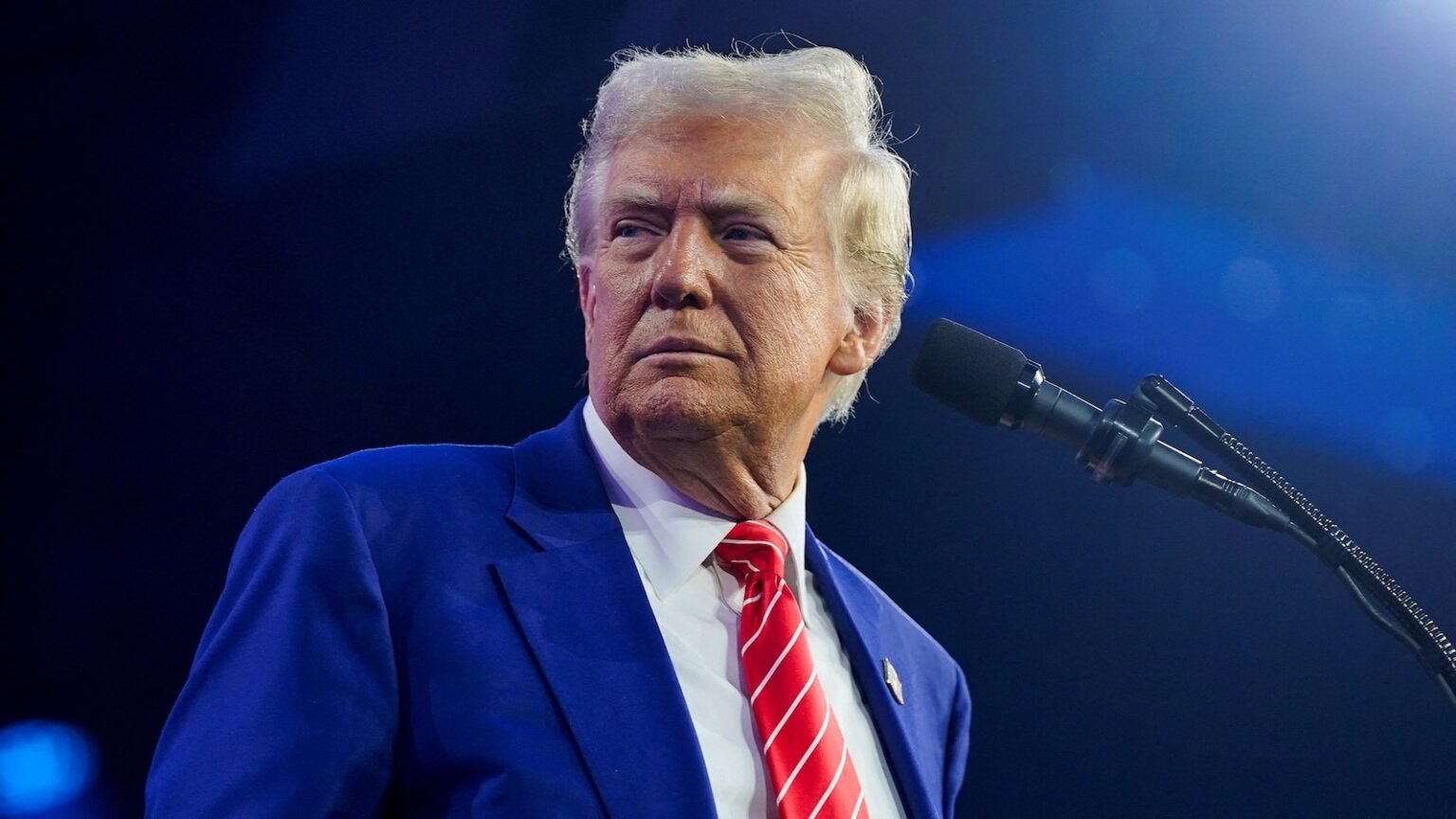As President Donald Trump begins to defend his executive order ending birthright in court, parents are grappling with the uncertainty stemming from his unprecedented executive order and the possibility that their future children could become “stateless.”
Five undocumented pregnant women and two nonprofit organizations filed a lawsuit Tuesday in a Maryland court challenging the order, which seeks to interpret the 14th Amendment’s birthright guarantee of citizenship as not applying to children of undocumented parents. Joining the lawsuit with nicknames, the women argued that Trump’s order deprives their future children of their constitutional rights.
“The principle of birthright citizenship is the foundation of our national democracy, is woven throughout our nation’s laws and has shaped a shared sense of national belonging for generations,” the lawsuit said.

President-elect Donald Trump attends Turning Point USA’s AmericaFest in Phoenix, Arizona on December 22, 2024.
Cheney Page/Reuters
The complaint makes similar claims to four other federal lawsuits signed by 22 states and two incorporated cities; however, this case is different in that it has multiple plaintiffs who would be directly affected by the executive order. The 38-page filing offers personal details about how the lives of each woman and their future children would change under Trump’s plan.
Monica, a Venezuelan doctor with temporary protection status who joined the lawsuit on a pseudonym, said she joined the lawsuit because she feared her future child would become stateless as her home country faces an ongoing humanitarian, political and economic crisis.
“I’m 12 weeks pregnant. I should be worried about my baby’s health. I should be thinking about that first and instead my husband and I are stressed, anxious and depressed about the reality that my child may not be a US citizen. become,” he said.
Maribel – who entered the case under a pseudonym along with four other women – has lived in the US for more than half of her life after emigrating from El Salvador and Guatemala. She is expecting her third child in July, but is worried that Trump’s executive order will tear her young family apart, the lawsuit says.
“She fears that the unborn child will not have the same citizenship rights as the older sisters of the future child, and may even face deportation, separating the family,” the lawsuit says.
“Every day, Executive Orders are being born in the United States that will put our Constitutionally guaranteed citizenship in jeopardy,” the lawsuit argued.
Liza and her husband Igor fled Russia for asylum in the United States, and are expecting a child in May. They can’t imagine being forced to return their newborn to a country that will likely prosecute them, the lawsuit says.
“Neither Liza nor Igor feel that they can return to Russia without being persecuted, and therefore do not feel that they will be able to apply for Russian citizenship for their child. Therefore, Liza and Igor are worried that their child will be stateless,” said has the case .
Juana, who is two months pregnant, fears what the future holds for her and her unborn child if they return to Colombia if her asylum claim goes through, according to the lawsuit.
“She wants her unborn child to be able to grow up in the U.S. without fear and with a sense of belonging. For her unborn child to be denied her U.S. citizenship and deported to Colombia without her is terrifying,” the lawsuit said.
Trinidad is an immigrant from Venezuela who will arrive in August, but she fears that Trump’s executive order will make her child stateless, caught between Venezuela’s democratic crisis and the legal turmoil of the United States’ immigration system, the lawsuit says.
Monica and her partner have Temporary Protected Status in the United States after seeking asylum from Venezuela, but are concerned that their children may not be eligible for either United States or Venezuelan citizenship. Monica said she came to the United States in 2019 with her husband and thought they were doing “everything the right way” by paying taxes, working and buying their own home, she said.
“We reached a point of stability in this country and we wanted to have a child,” Monica said.
A happy change in their lives quickly turned to fear, Trump said, as they watched the U.S. follow through on its promise to end its promise of birthright citizenship with a grain of salt.
“It’s a really difficult situation where I really don’t see a way out for my child, for my child to get through this and move on,” she said.
Because Venezuela no longer offers consular services in the United States, Monica said she cannot consider the possibility of obtaining citizenship for her children there. Her lawyers do not know whether Trump’s executive order would apply to people with temporary protected status, so deciding whether her child will become an American citizen is a challenge to the president, she said.
“This executive order has left us with more uncertainty than ever before. Will my child be a US citizen? Will it be nothing? We don’t know what to do,” she said.

